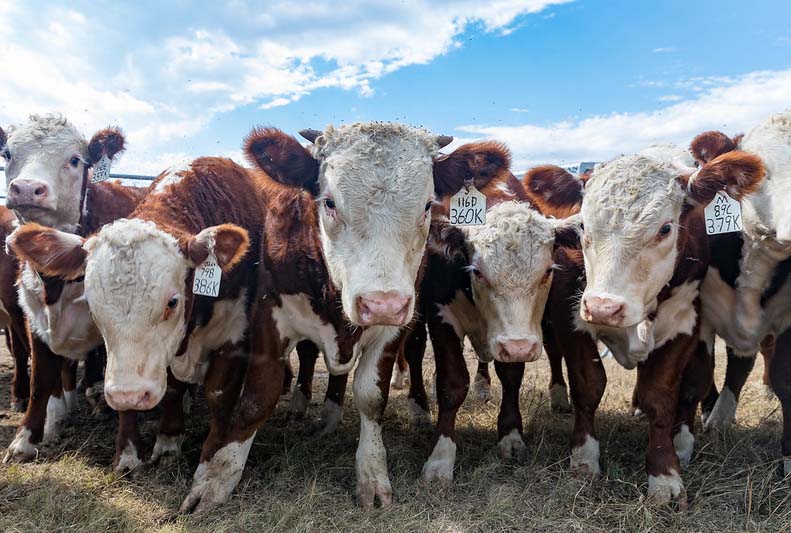
Coccidiosis can afflict newly weaned calves. | Download this photo.
Cattle Chat: Managing a post-weaning parasite
K-State beef cattle veterinarians talk about how to keep coccidiosis from afflicting the calves after weaning
Nov. 22, 2022
By Lisa Moser, K-State Research and Extension news service
MANHATTAN, Kan. — Tummy troubles can be miserable and if diarrhea is a symptom, it can lead to a serious illness in people and cattle, say the experts at the Kansas State University Beef Cattle Institute on a recent Cattle Chat podcast.
“Newly weaned calves can show signs of coccidiosis, which is caused by a parasite that invades the lining of the small intestine and can result in bloody diarrhea,” said Bob Larson, K-State veterinarian.
Another sign that calves may be ill is a rough haircoat, Larson said, adding that calves sick with coccidiosis will just appear ill and not be thriving.
“Newly weaned calves are going through dietary changes and experiencing stresses that make them more susceptible to disease at this time of life,” Larson said.
For producers who have this sickness moving through the calves, Larson advises talking to the local veterinarian to confirm that coccidiosis is the correct diagnosis, and then employ management and treatment options.
“First, make sure that you have good sanitation procedures in place, which means that the lots the calves are in are scraped well and they are in a clean environment,” Larson said. “Also make sure the calves are eating their feed and hay from feeders so that calves are not eating feed that could be contaminated by the ground.”
Larson also recommended using additives in the feed and water to help reduce the parasite load.
“We have an additive specifically to prevent or treat coccidiosis that can be delivered in water or feed and we can add ionophores to the feed that can help us control coccidiosis as well as have feed efficiency benefits,” he said.
He advises that when producers know they are going to be caring for newly weaned, stressed calves that it is important to start the medication before there is a problem.
“Because of the life cycle of the parasite, it is important to add the medication to the feed or water for a 28-day period,” Larson said. “Start the calves on the medication when they are moved to the dry lot and then keep them on it for a few weeks.”
To hear the full discussion, listen to the Cattle Chat podcast online or on your preferred streaming platform.

